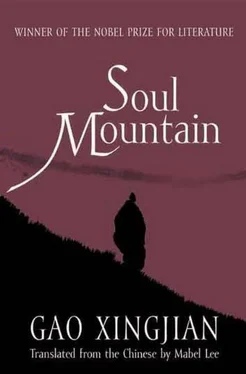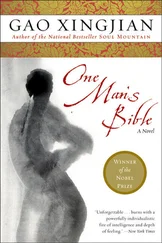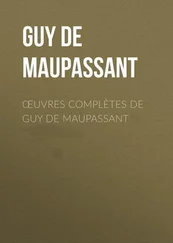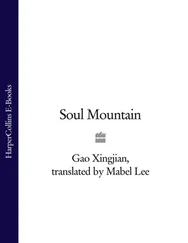Gilbert C. F. Fong, trans., The Other Shore: Plays by Gao Xingjian , Hong Kong: The Chinese University Press, 1999.
Lau, Winnie, Deborah Sauviat and Martin Williams, trans., “Without Isms”, The Journal of the Oriental Society of Australia , 27 & 28 (1995–1996).
Lee, Mabel, trans., Soul Mountain , HarperCollins, Sydney, 2000.
Ng, Mau-sang, trans., “Contemporary Technique and National Character in Fiction”, Renditions , 19 & 20 (1983).
Riley, Jo, trans., “The Other Side: A Contemporary Drama Without Acts” in Martha P. Y. Cheung and Jane C. C. Lai, An Oxford Anthology of Contemporary Chinese Drama , Oxford and New York: Hong Kong University Press, 1997.
Roubicek, Bruno, trans., “ Wild Man : A Contemporary Chinese Spoken Drama”, Asian Theatre Journal , 7. 2 (1990).
Critical Works in English on Gao Xingjian
Comprehensive listings of works on Gao Xingjian in Chinese, Swedish, French, German, Japanese and English are contained in Gilbert C. F. Fong (trans.), The Other Shore: Plays by Gao Xingjian , Hong Kong: The Chinese University Press, 1999, and in Henry Z. Y. Zhao, Towards a Modern Zen Theatre: Gao Xingjian and Chinese Theatre Experimentalism , London: SOAS Publications, 2000 (in print).
Barmé, Geremie, “A Touch of the Absurd: Introducing Gao Xingjian, and His Play The Bus Stop ”, Renditions , 19 & 20 (1983).
Burckhardt, Olivier, “The Voice of One in the Wilderness”, Quadrant (April 2000).
Chen Xiaomei, “A Wildman between Two Cultures: Some Paradigmatic Remarks on ‘Influence Studies’”, Comparative Literature Studies , 29. 4 (1992).
Lee, Mabel, “Without Politics: Gao Xingjian on Literary Creation”, The Stockholm Journal of East Asian Studies , 6 (1995).
“Walking Out of Other People’s Prisons: Liu Zaifu and Gao Xingjian on Chinese Literature in the 1990s”, Asian & African Studies , 5. 1 (1996).
“Personal Freedom in Twentieth Century China: Reclaiming the Self in Yang Lian’s Yi and Gao Xingjian’s Lingshan ”, in Mabel Lee and Michael Wilding, eds, History, Literature and Society: Essays in Honour of S. N. Mukherjee , Sydney and New Delhi: Sydney Association for Studies in Culture and Society, 1997.
“Gao Xingjian’s Lingshan/Soul Mountain : Modernism and the Chinese Writer”, HEAT, 4 (1997).
“Gao Xingjian’s Dialogue with Two Dead Poets from Shaoxing: Xu Wei and Lu Xun”, in R. D. Findeisen and R. H. Gassman, eds, Autumn Floods: Essays in Honour of Márian Gálik , Bern: Lang, 1998.
“Gao Xingjian on the Issue of Literary Creation for the Modern Writer”, Journal of Asian Pacific Communication , 9. 1 & 2 (1999).
“Pronouns as Protagonists: Gao Xingjian’s Lingshan as Autobiography”, China Studies , 5 (1999).
Li Jianyi, “Gao Xingjian’s The Bus-Stop: Chinese Traditional Theatre and Western Avant-garde”, Masters thesis, University of Alberta, 1991.
Lodén, Torbjörn, “World Literature with Chinese Characteristics: On a Novel by Gao Xingjian”, The Stockholm Journal of East Asian Studies , 4 (1993).
Ma Sen, “The Theatre of the Absurd in Mainland China: Gao Xingjian’s The Bus Stop ”, Issues and Studies: A Journal of China Studies and International Affairs , 25. 8 (1989).
Quah Sy Ren, “Gao Xingjian and China’s Alternative Theatre of the 1980s”, M. Phil. thesis, University of Cambridge, 1997.
The Theatre of Gao Xingjian: Experimentation Within the Chinese Context and Towards New Modes of Representation”, PhD thesis, University of Cambridge, 1999.
Riley, Josephine, and Else Unterrieder, “The Myth of Gao Xingjian”, in Josephine Riley and Else Unterrieder, eds, Haishi Zou Hao: Chinese Poetry, Drama and Literature of the 1980s , Bonn: Engelhard-Ng Verlag, 1989.
Sauviat, Deborah, “The Challenge to the ‘Official Discourse’ in Gao Xingjian’s Early Fiction”, BA Honours thesis, University of Sydney, 1996.
Tam Kwok-kan, “Drama of Dilemma: Waiting as Form and Motif in The Bus Stop and Waiting for Godot ”, in Yun-Tong Luk, ed., Studies in Chinese — Western Comparative Drama , Hong Kong: The Chinese University Press, 1990.
Tay, William, “Avant-garde Theatre in Post-Mao China: The Bus Stop by Gao Xingjian”, in Howard Goldblatt ed., Worlds Apart: Recent Chinese Writing and Its Audiences , Armonk and New York: M.E. Sharpe, 1990.
Zhao, Henry Y. H., Towards a Modern Zen Theatre: Gao Xingjian and Chinese Theatre Experimentalism , London: SOAS Publications, 2000 (in print).
Zou Jiping, “Gao Xingjian and Chinese Experimental Theatre”, PhD dissertation, University of Illinois, 1994.
GAO XINGJIAN(whose name is pronounced gow shing-jen) is the first Chinese recipient of the Nobel Prize in Literature. Born in 1940 in Jiangxi province in eastern China, he studied in state schools, earned a university degree in French in Beijing, and embarked on a life of letters. Choosing exile in 1987, he settled in Paris, where he completed Soul Mountain two years later. In 1992 he was named a Chevalier de l'Ordre des Arts et des Lettres by the French government. He is a playwright and painter as well as a fiction writer and critic.
Конец ознакомительного отрывка
Купить книгу












